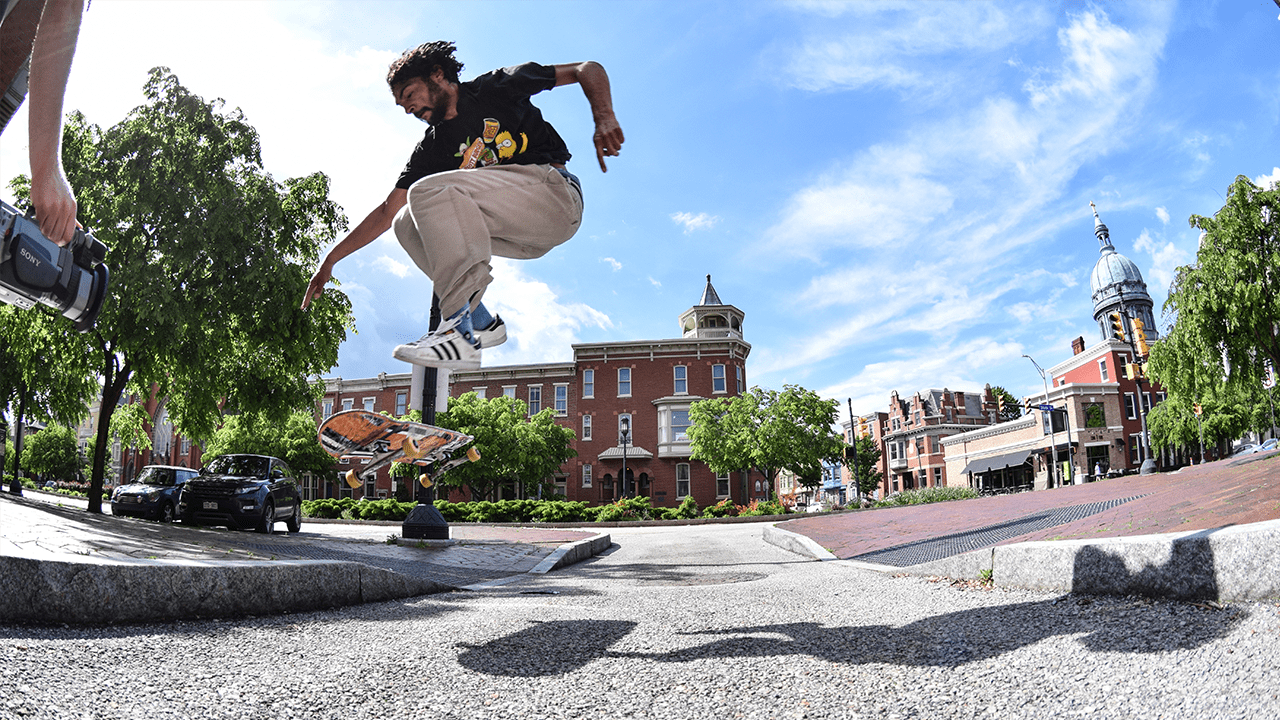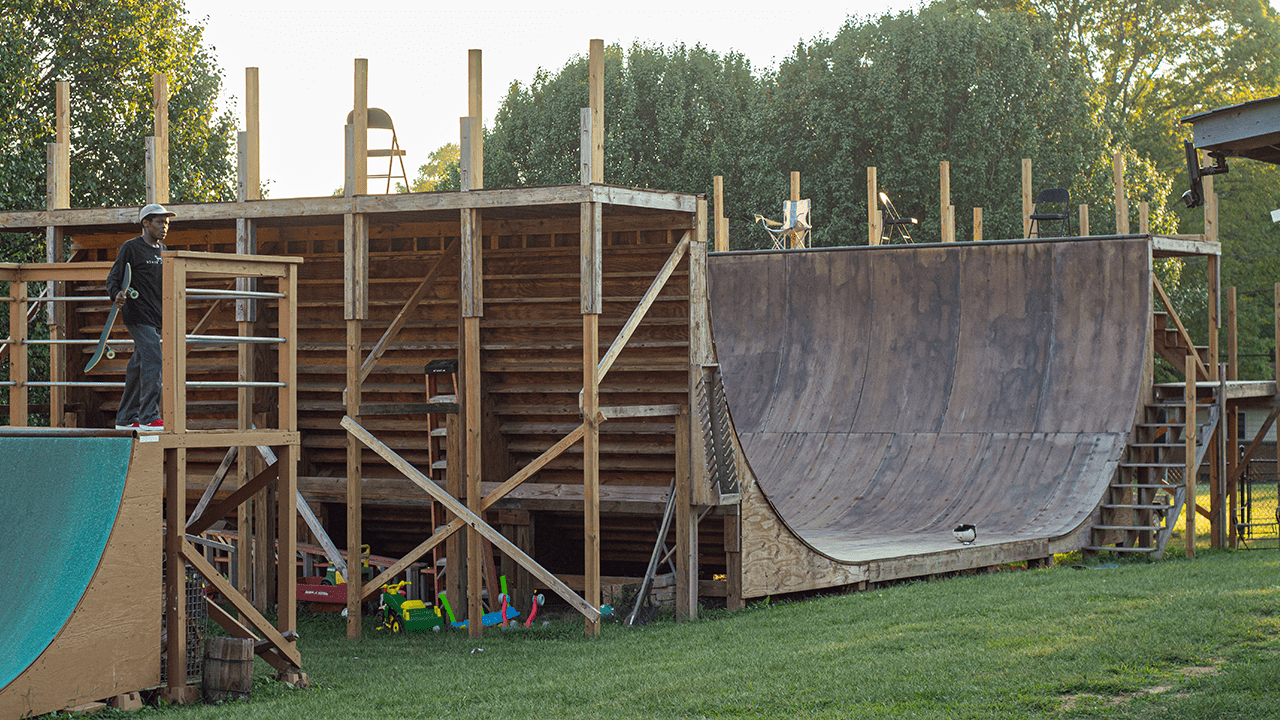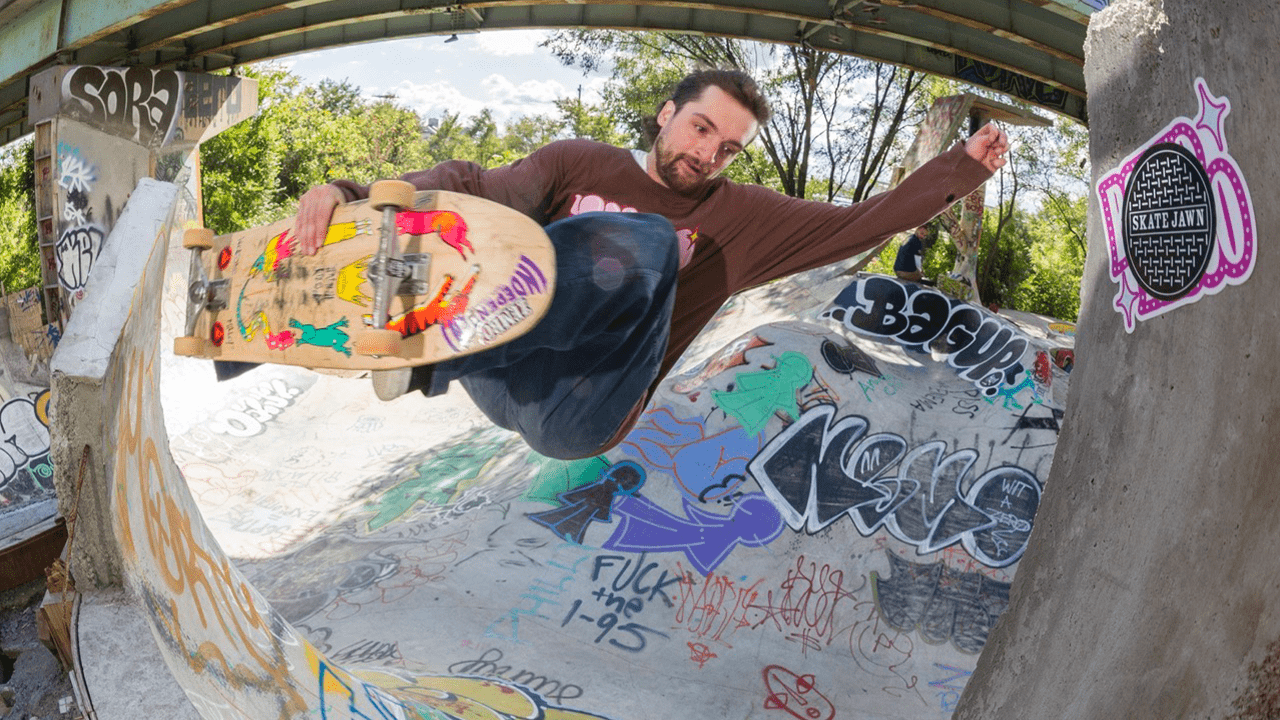Words and photos by Maen Hammad
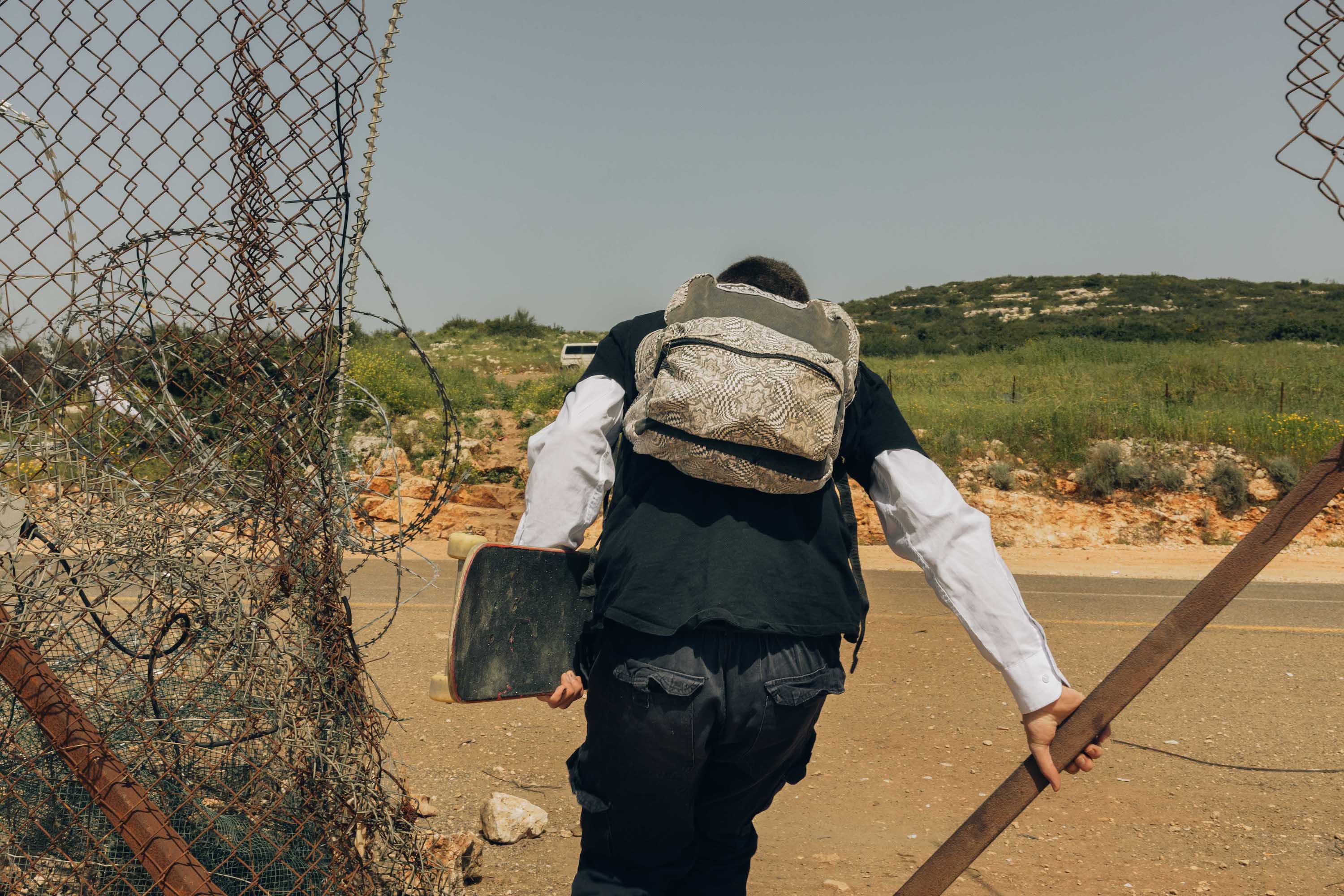
The first time I ran from the cops was on my skateboard in the eighth grade in US suburbia. It is my earliest memory of being politicized.
Skateboarding is a political act, is it not?
Our culture, our practice, and our politics takes shape from the streets. We are witnesses to the systems, artisans of our surroundings, and political agents of the space we inhabit.
Through skateboarding, we develop a profound appreciation for the streets. We understand that it is a miraculous place – a microcosm of our world: disgusting, violent, and beautiful. The street is not just a setting, instead, it is an indoctrination to our concept of justice.
I know, I feel, that skateboarding has a long history as a counterculture and movement against state-sanctioned violence. To create, resist, and manifest power. I am not alone when I say that a ledge is not just a ledge. A set of stairs or a gap is not just empty space. But instead, they serve as portals to a world of our own. One where we engage with the space around us, instead of just being victim to it. One where we correct the world around us, instead of standing idle.
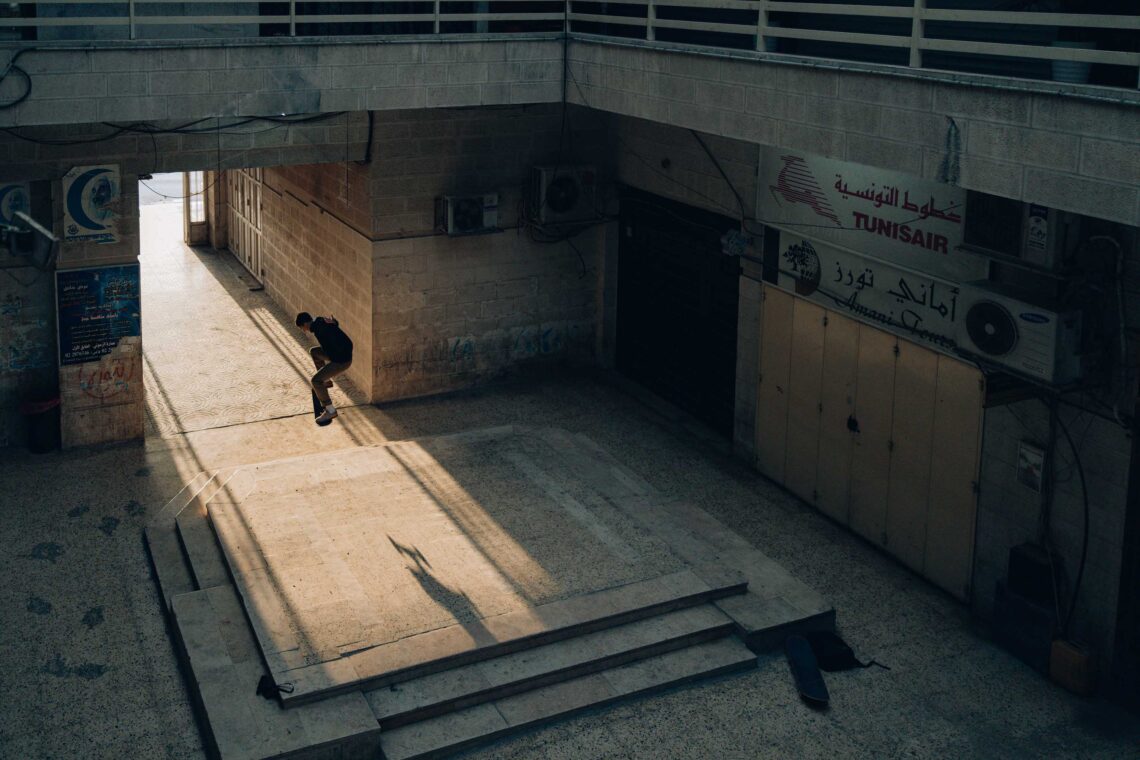
Kareem Barakat ollie in the occupied West Bank city of Ramallah.
Street skateboarding is an interpretive dance with our world and its people, and evidence of our unique lens. Our craft equips us with a perspective infused with humanity and a touch of rage. Skateboarding allows us to zoom into the global pitfalls swarming our surroundings, our space. From gentrification to genocide. A mirror, to reflect, to resist, and to stare back. Back towards the killer cops, the soldiers, the yuppies, and all of their gaze. There is incitement in their eyes, that ‘we are the rats’. Yet, they are unaware that we are all in the slums of Rome. And that — we — are trying to break free.
As a Palestinian skateboarder, who has been documenting the skateboard scene in my home for seven years, I know the importance of our craft. Of skateboarding’s escape and resistance. How we refuse to succumb to a stolen imagination. Instead, we use skateboarding as alchemy. We concoct joy, we disrupt a headspace of violence, and we manifest power with, rather than power on.
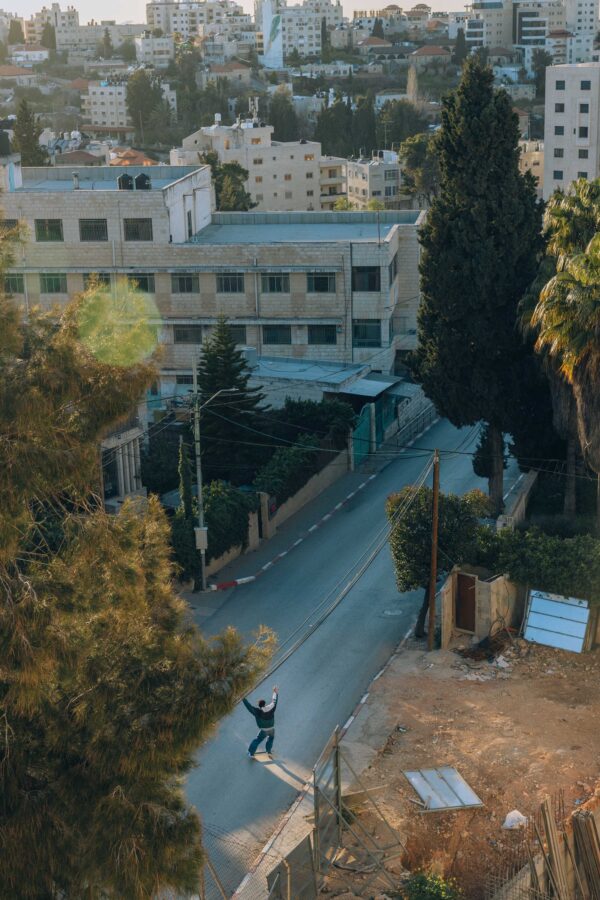
Aram Sabbah hill bomb in Ramallah.
Street skateboarding in Palestine, like in the streets of Washington D.C., or the sidewalks of Wall Street, is a confrontation to, and with, the powers that be. In Palestine, where land and resistance hold an unwavering relationship, skateboarding accompanies us as a medium to freedom.
We may be few, numbering only in the dozens, but we exist as small crews across all of occupied Palestine. We are skaters, which means we share resources and recycle decks. We rock, paper, scissors before a game of skate. We use candles as wax and Thrasher clips are atop our Insta feed.
We are protectors of our homies. We skate in solidarity.
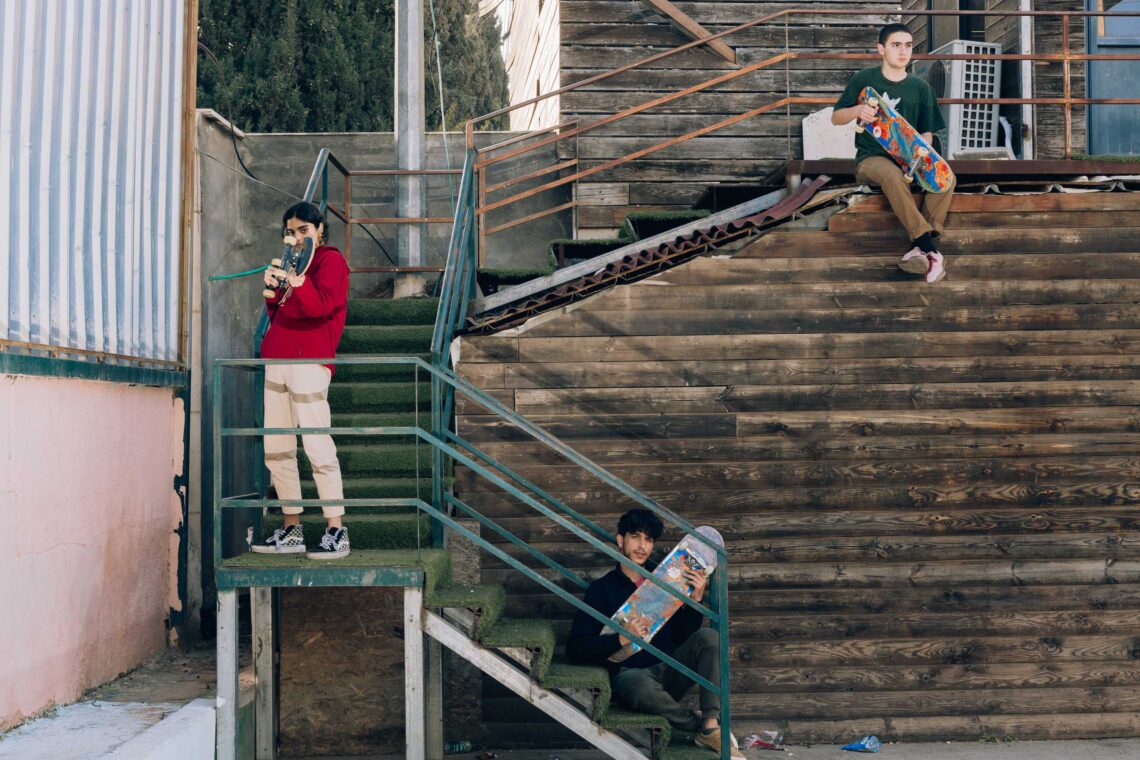
A network of hundreds of Israeli checkpoints dominate, control, and dehumanize the lives of millions of Palestinians living under Israel’s brutal military occupation. Here is the skaters’ re-enactment of being on the other side of the checkpoint.
We evade security and confront the machines of death at our doorsteps. We DIY to resist a disgusting occupation and supremacist regime. We mourn the fallen skaters.
Skateboarding is liberatory. Literal skateboards have been wielded as weapons against white supremacy in the U.S. During the 2020 uprising, Anthony Huber, 26, a father and skateboarder was shot and killed while attempting to take down an armed Kyle Rittenhouse with his skateboard in Kenosha, Wisconsin.
In January 2023, Tyre Nichols, a father and skateboarder was beaten to death by killer cops in Memphis, Tennessee. Palestinian skateboarders are being killed too.
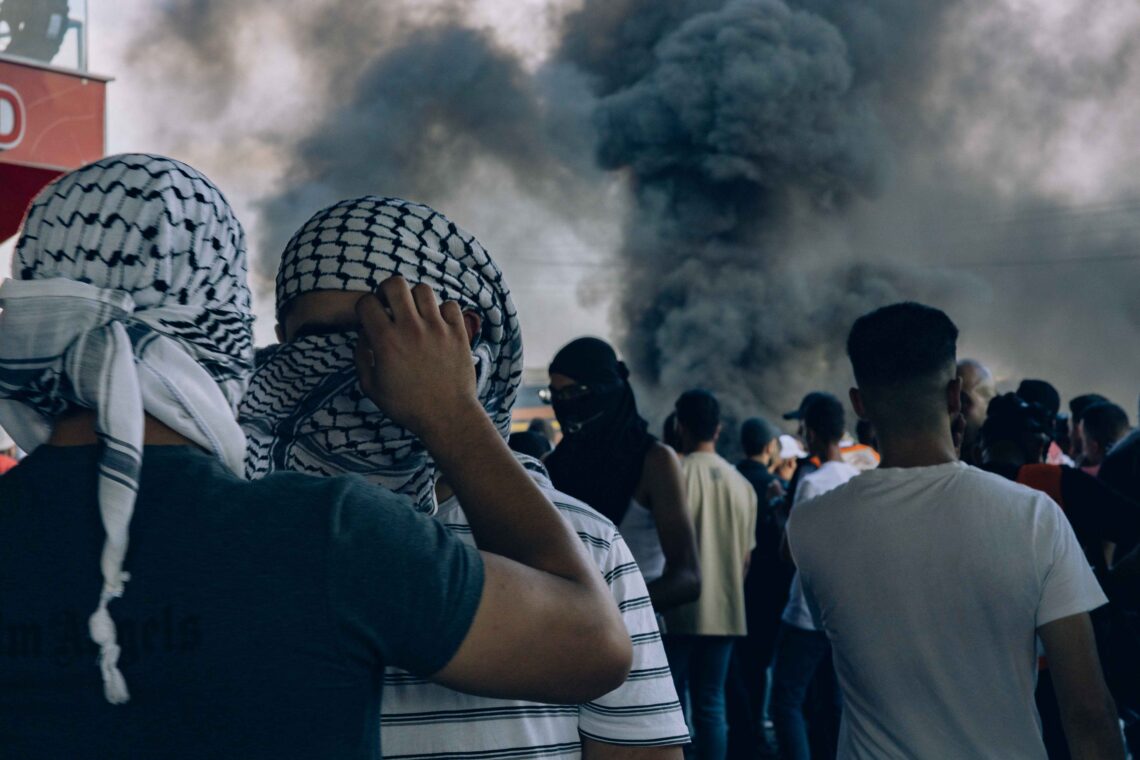
A young Palestinian man has his face shielded with a kuffiyeh during a confrontation with the Israeli regime near the illegal Beit El settlement in the occupied West Bank city of al-Bireh.
Since October 7th, two skateboarders were murdered by the Israeli regime’s bullets in the occupied West Bank. Funded by our tax dollars.
On October 12, Mohtade Saleem, 17, was killed near the apartheid wall in his hometown of Jayyous. He was trying to escape Israeli gunfire when a single Israeli bullet killed him.
On October 25th, Hamza Taha, 19, was killed by the Israeli regime during a military raid in his hometown of Qalqilya.
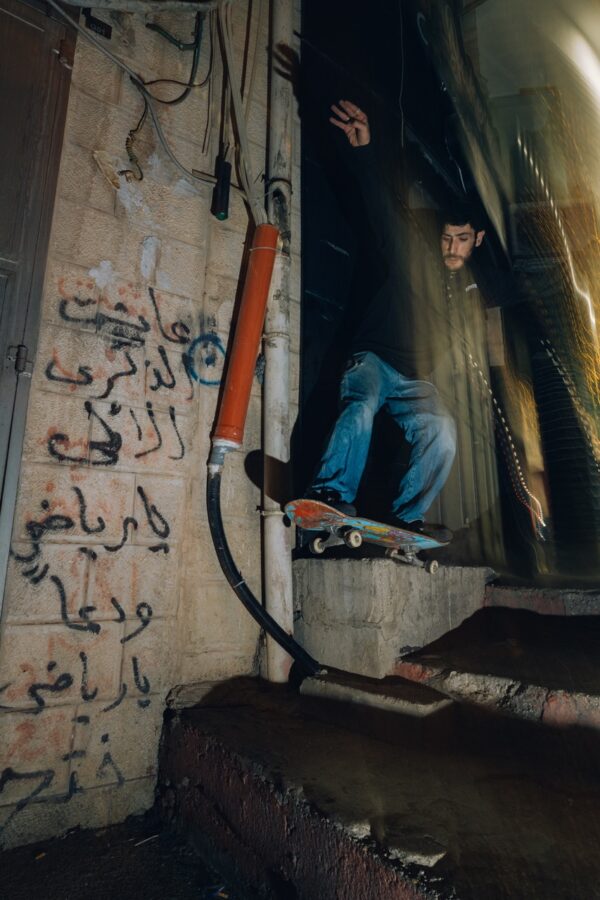
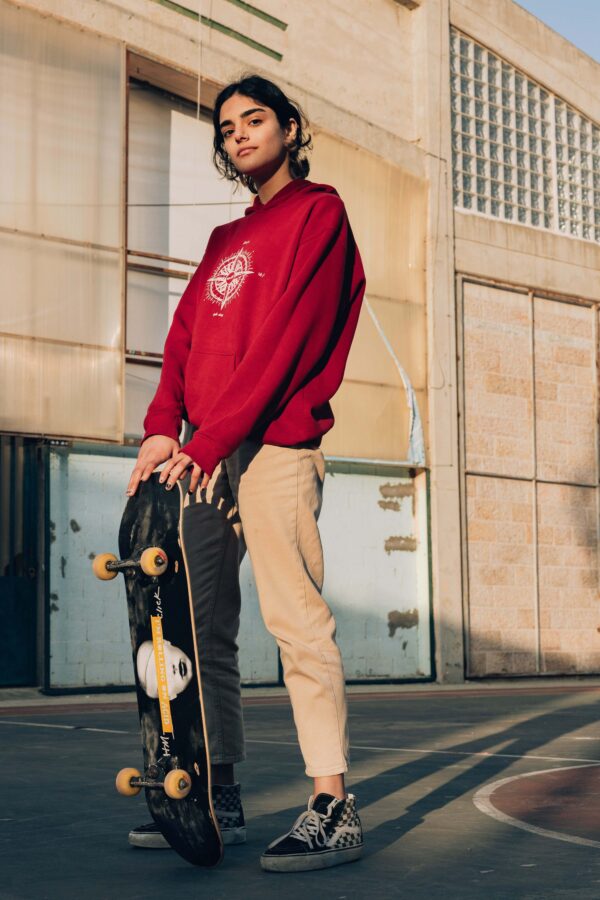
Left: Aram Sabbah, ride on 50-50 in Ramallah. Right: A portrait of Zaina Amous.
The largest protest in US history calling for Palestinian freedom took place on November 4th in Washington, D.C., commencing from Freedom Plaza. I spent three years living and skating in DC, at Freedom Plaza. It remains one of my favorite places on this planet. Tied with Palestine’s al-Bireh plaza. They both share the most important element to skateboarding: community.
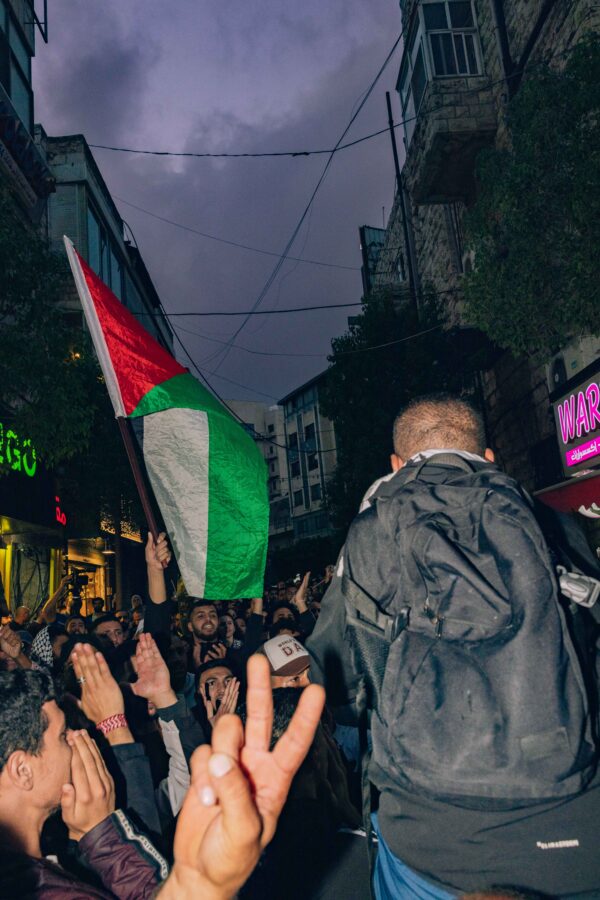
Solidarity protests with Gaza in Ramallah.
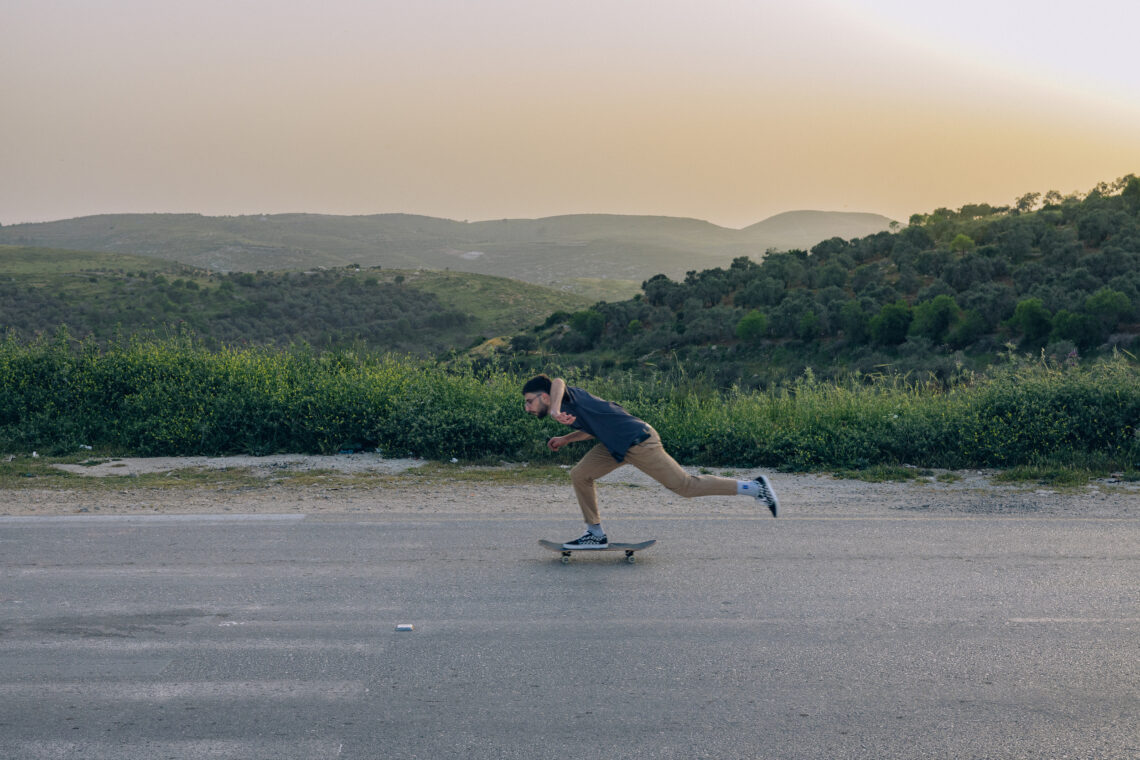
Kilani pushing in Asira al-Shamiliya in the occupied West Bank.
Skateboarding is a transnational subversion to systems of oppression. Where state-sanctioned violence erects walls from Mexico to Palestine, our craft transcends borders – transcends skateboarding. We are connected through pavement, sharing our streets, our struggles, and pushing for solidarity.
Maen Hammad is a documentary photographer and skateboarder who has been documenting the Palestinian skateboard scene for the last six years. He engages in reciprocal nourishment with his community. He was born in Palestine, raised in the American suburbs of Michigan, and is currently based in between Boston and Ramallah, Palestine. Maen has been documenting in the occupied West Bank since October 7th.

